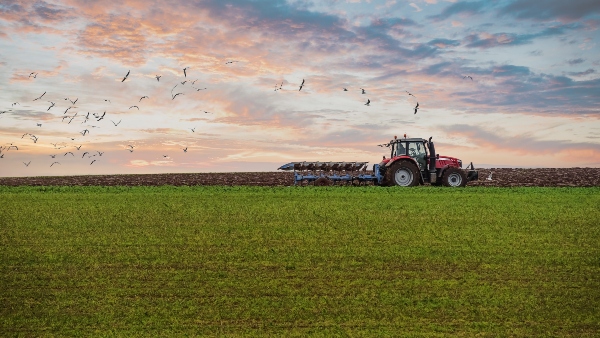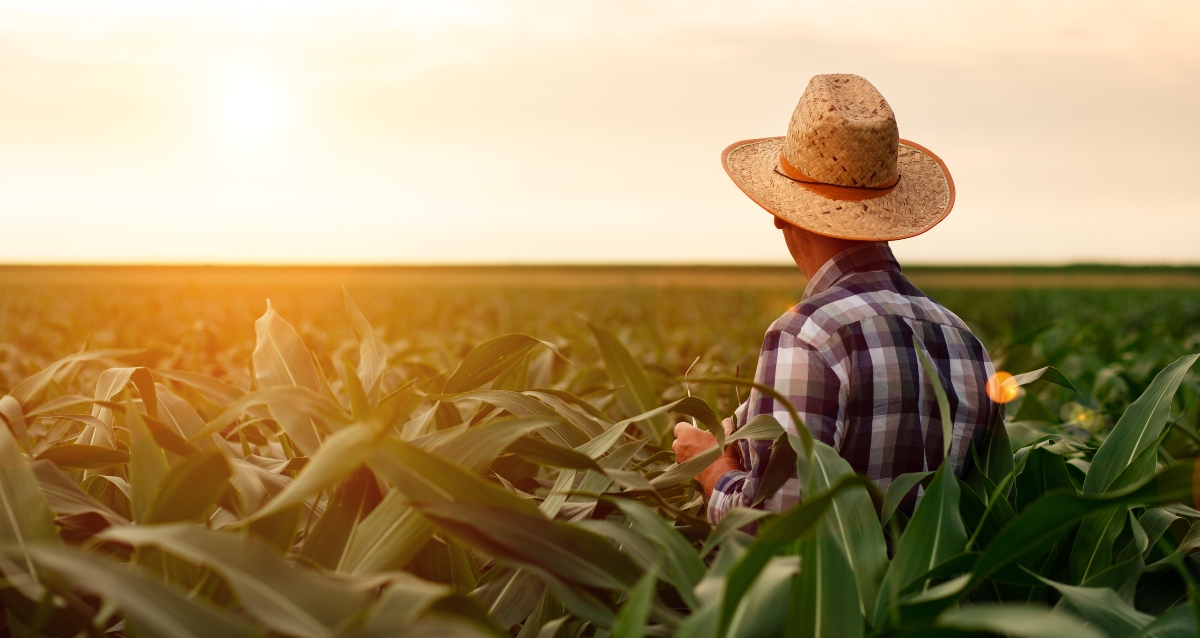When folks think about farming, they often picture rolling fields, fresh air, and a simpler life. But the truth is, farming can be anything but simple.
As a Mental Health Therapist in rural Ontario and Psychological Support Manager for the Canadian Centre for Agricultural Wellbeing (CCAW), and as someone who knows farm life firsthand, I’ve seen how isolation, chronic stress, and relentless pressure affect farmers across Canada.
More than just a job
Farming isn’t just a job; it’s a lifestyle, a legacy, and a deep-rooted identity. Days typically start around 4:30 a.m. and can stretch beyond 8 p.m., seven days a week. On a farm, 12-hour days are short days. You live your work, and the work never stops.
Farmers don’t get to clock out. Even during downtime, you’re busy planning the next planting and worrying about equipment, market conditions, and weather. The constant mental load can be exhausting.
Why farming should matter to every Canadian
Farming isn’t just important to farmers—it’s vital to all Canadians. Food security and the sustainability of our communities depend on the wellbeing and resilience of those who grow and produce food. Farmers also play a vital role in Canada’s economy and international trade.
When farmers struggle, it has a direct impact on food production, prices, and availability. Supporting farmers’ mental health isn’t just a rural issue; it’s a national priority. Every Canadian has a stake in ensuring that farming communities are healthy, sustainable, and thriving.
When farming feels lonely
Farming can be an incredibly isolating lifestyle, and not just because the neighbours are a few miles down the road. As farms grow in size and operations become more complex, farmers find themselves working alone more often, managing not just the labour but also the finances, the equipment, and the people.
Long hours and relentless responsibility mean social time sometimes takes a back seat, especially during planting or calving season.
Being misunderstood is another thing that can lead to stress and isolation. Many farmers say they feel misunderstood by the public or overlooked by decision-makers who don’t understand what it takes to keep a farm running. That disconnect can be just as lonely as a quiet field.
On top of that, you likely experience stressors such as succession planning, worries about tariffs affecting the cost of equipment, or the regret of missing important family moments like birthdays. If the sound of gravel pouring out of the conveyor belt tells you that you’ve run out of silage – that takes immediate priority – even if it means missing Johnny’s birthday. Not because you don’t care but because that’s survival.
And when you’re always the one others count on—the one who can fix anything—it can be hard to admit when you’re the one who needs support.

Why it’s hard to ask for help
Farmers are the first to step up when others need a hand, covering chores for a neighbour without question. But when it comes to admitting you might be struggling yourself, pride and shame can get in the way.
Most farmers were raised to fix things on their own. That mindset runs deep. You can patch a fence, fix a combine, or calve out a cow in the middle of the night. But when it comes to your own wellbeing, lots of men are at a loss. Admitting you’re overwhelmed can feel like letting down the people who depend on you.
And the reality is—there’s not always someone “above” you to lean on. You run the farm, manage the staff, and handle the books. You’re at the top of the ladder. Who do you turn to when you’re supposed to have all the answers?
There’s also a fear of being judged, whether by our own community or by people outside the industry who don’t understand the pressure you’re under. It’s easier to keep it all in and say, “I’m fine.” But that silence can turn into something heavier over time.
Signs you or a farmer you know might be struggling
There are subtle yet telling signs farmers often overlook:
- Unable to shake being tired, no matter how much sleep you get, making the little tasks feel overwhelming. Skipping everyday tasks because you don’t have the energy.
- Zoning out in the barn or in the field.
- Increased irritability and shortened patience levels.
- Decision fatigue: making a choice about what to do next becomes muddy.
Farmers are expert problem-solvers—except when it comes to themselves.
Realistic steps to beat isolation
Telling farmers to simply “take a vacation” isn’t realistic and misses the mark entirely. Practical solutions look more like:
- Quick check-ins with other farmers via short texts or calls—even brief conversations about the planting season or equipment—can be a lifeline.
- When you can, find time to get off the farm and spend some time with friends, family, and the community.
- You can access virtual support, like our national farmer crisis line at CCAW, even from the seat of your tractor.
Small connections matter. A simple conversation about how the planting season is going can help lighten the mental load.
How CCAW can help
At the Canadian Centre for Agricultural Wellbeing (CCAW), we’re dedicated to supporting the mental health of farmers across Canada. We offer a 24/7 nationwide crisis hotline specifically designed for farmers, providing immediate and confidential support whenever you need it most.
We also offer educational programs, such as “In the Know,” which equip farmers and their communities with practical mental health strategies and resources. We understand farm life firsthand and are committed to providing culturally relevant and accessible support to strengthen resilience within our farming communities.
You’re not alone
If something feels off, trust your gut. Asking for help isn’t weakness—it’s taking care of business. Mental health matters just as much as any other part of the operation. And just like you’d call a mechanic or agronomist when something’s not working right, it’s okay to call in support for yourself.
Farming requires resilience, but that doesn’t mean going it alone. Admitting you’re struggling is a tough step, but it’s also a strong one.
Need Support Now?
Call 1-866-FARMS01 anytime — 24/7, 365 days a year.
If you’re a farmer reading this, is there any other information you’d like to see about mental or physical health? We love getting feedback from the community. You can share in the comments below.


Join guys across Canada talking about the tough stuff and getting tools to build better mental health. June is Men’s Health Month.







Let’s Talk!
Did you enjoy this article? Let us know in the comments.
0 Comments